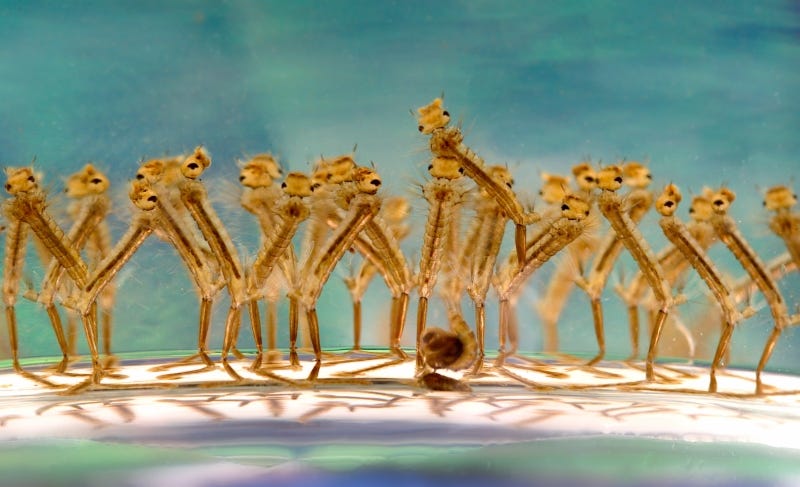
MILTON — Recent rains, combined with warm, humid weather, offer a perfect environment for mosquito breeding.
While Santa Rosa County has seen no local transmissions of Zika virus, mosquitos can still transfer dangerous diseases including St. Louis encephalitis, eastern equine encephalitis and West Nile virus.
Concerns over mosquito-borne illnesses serve as a reminder to area residents to do their part to reduce the spread of mosquitoes.
Santa Rosa mosquito technicians are monitoring the county's mosquito traps and treating standing water, such as holding ponds, with larvicide.
The western mosquitofish, gambusia affinis, is used to control mosquito larvae in environmentally sensitive areas. While larvae abatement is a year-round practice, spraying for adult mosquitoes generally begins in the spring, when temperatures begin to consistently stay above 60 degrees.
Residents can help reduce the mosquito population by draining flower pots, watering cans, food bowls and any container that holds water.
Moist leaves and organic matter also provide a perfect environment for mosquito larvae. By cleaning gutters and raking leaves, homeowners can stop the growth cycle.
Residents may call 981-7135 to report areas of standing water, such as neglected or abandoned swimming pools.
This article originally appeared on Santa Rosa Press Gazette: How to keep flies away
